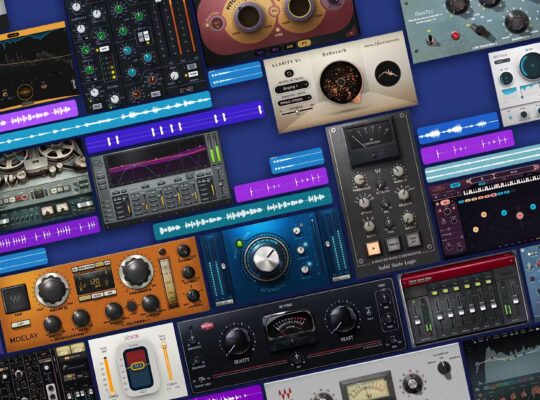Completing a track is a significant challenge for both beatmakers and techno music producers. This list offers methods to help you finish your tracks more quickly.
Why is it so difficult to finish music? What could be the reasons behind this challenge? One might think that adding drums, bass, chords, and a catchy melody would mean the track is complete. Is it really that simple? If so, why do so many music producers struggle to finish the projects they start? Several factors contribute to this issue. Many producers get caught up in tweaking minor details, never feeling that their track is “good enough.” This tendency is often referred to as perfectionism. Other common obstacles include a lack of a clear vision for the track, self-doubt, and comparing their work to others. To address these challenges, various strategies can help. In this article, we will discuss the 10 best ways to finish your tracks.
Here are 10 ways to push through and complete your track:
- Set a deadline
- Take Breaks
- Use Reference tracks
- Try Different genres
- Collaborate with other Artists
- Experiment with tools and equipment
- Finish the Structure First
- Don’t Overdo It
- Try to be in the moment
- Use a Stop Watch to Make It a “Sprint” Session
1. Set a deadline:
Setting a deadline is just as important as coming up with an idea. A song without a deadline may never get finished. You’d be surprised at how a self-imposed deadline can motivate you to complete tasks. Establishing deadlines can help you get things done, including your music-making. This advice applies to all aspects of life, so consider it and take action.
2. Take Breaks:
Taking breaks is one of the most effective ways to complete your music projects. It’s important to differentiate between the creative process and the mixing process. Many renowned artists follow this technique. Try working in short sessions—like spending one hour creating a beat, then taking a 20-minute break to refresh your mind. This approach can help spark new and fresh ideas. As music producers, we often listen to tracks for hours, which can lead to ear fatigue and a diminished sense of perspective. Stepping away, even for a brief period, helps reset both your ears and your mind. When you return, you’ll notice details you might have missed, and you may find opportunities to add extra elements to your work.d extra elements to your work. extra elements to your work.
3. Use Reference tracks:
Using reference tracks can significantly aid in finishing your music. They help you understand the structure, arrangement, and mixing choices, making it easier to complete your song. Many producers utilize this technique. However, it’s important not to imitate everything from the reference track. Here’s how you can do it:
1. Choose a reference song that is in the same genre and key as your track.
2. Analyze the structure: How long is the intro? How frequently does the chorus repeat?
3. Use the reference track to evaluate your mix: Are the vocals too loud? Does the bass have enough punch?
By following these steps, you can effectively enhance your music production process
4. Try Different genres:
Don’t limit yourself to just one genre. Many producers make the mistake of being inflexible and sticking only to what they know. Exploring different styles can unlock new ideas and help you break free from predictable patterns. For example, if you’re a techno producer, try creating melodic tracks. Conversely, if you’re a hip-hop producer, experiment with orchestral elements. Even if you don’t stick with the new genre, the process of reimagining your music can spark fresh inspiration and lead to breakthroughs.
5. Collaborate with other Artists:
Collaboration is one of the best ways to finish tracks. Sometimes, gaining an outside perspective is all you need to overcome creative blocks. Working with another artist can result in unexpected melodies, harmonies, or lyrical ideas. Even you can share your unfinished track with a trusted friend for feedback, which can provide the motivation you need to move forward. If you’re struggling with a particular section, consider allowing someone else to contribute—it could be exactly what your song needs to feel complete.
6. Experiment with tools and equipment:
Experimenting with different tools and equipment can inject new energy into your creative process. If you usually compose on a piano, try using a guitar instead. If you tend to rely on the same drum samples, consider switching to a new sound pack. Even small changes in your workflow, such as starting with percussion instead of chords, can inspire fresh ideas. The goal is to shake things up and avoid getting stuck in repetitive creative patterns. This approach can help you finish your song more quickly while enhancing your creativity.
7. Finish the Structure First:
A structured approach to songwriting can significantly streamline the process. Instead of getting caught up in minor details, focus on completing the overall structure of the song first. Outline the main sections—intro, verse, chorus, bridge, and outro—before delving into intricate production elements. Once you have a complete structure in place, it becomes easier to refine each section and achieve a polished final version. Many unfinished songs remain incomplete simply because they lack a clear roadmap.
8. Don’t Overdo It:
Perfectionism is one of the biggest obstacles to finishing a song. It’s easy to get caught in the trap of over-polishing, making endless tweaks that don’t significantly improve the track. At some point, you have to accept that no song will ever be 100% perfect. If you’ve put in a reasonable amount of work and the track feels solid, commit to finishing it. You can always release a remix or an alternate version later. However, constantly chasing perfection can prevent you from sharing your music with the world. The same principle applies to mixing and mastering; producers need to understand that keeping things simple is often better.
9. Try to be in the moment:
Staying present in the moment is a crucial part of creativity that people often overlook. Overthinking can disrupt your flow. Some of the best music comes from quick, instinctive decisions instead of analyzing every little detail. If you often doubt your choices, take a step back and let the creative process happen naturally. Trust your instincts, accept imperfections, and remember that music is about expressing yourself, not following strict rules.
10. Use Stop Watch to make it a “Sprint” Session:
Using time limits can improve productivity. One helpful method is to set a stopwatch and work in short “sprint” sessions. Spend 30 to 60 minutes on a specific task, like writing a verse, finalizing a mix, or arranging a section. The time limit encourages quick decisions and helps reduce overthinking. By dividing your work into short sprints, you can stay focused and make clear progress without feeling overwhelmed.

















